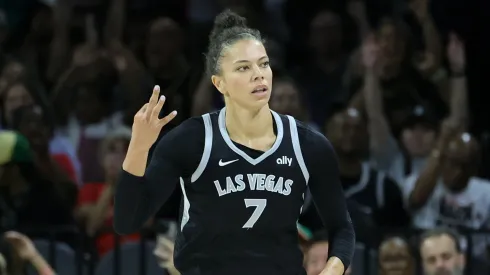The WNBA players’ union has chosen to withdraw from the existing collective bargaining agreement, two years prior to its expiration. After the decision was announced, players like Las Vegas Aces’ Alysha Clark and Chicago Sky’s Brianna Turner reacted to the news.
“It’s business. Buckle up,” wrote Clark in a post on X with a smiling emoji. Turner also repeated the phrase “it’s business,” which is the slogan that the WNBA Players Association also used in their video announcing the decision. Meanwhile, Angel Reese reposted the announcement.
Both the league and the players’ union had the opportunity to make this decision before November 1. The early opt-out comes after the league signed a 11-year media deal with Disney, Amazon Prime and NBC for $200 million in July. It also follows an historic season, in which the WNBA broke attendance and viewership records.
“This is a defining moment not just for the WNBA, but for all of us who believe in progress,” WNBPA president Nneka Ogwumike said in a statement Monday. “The world has evolved since 2020 and we cannot afford to stand still. If we stay in the current agreement, we fall behind. This is a new era and we are ready to lead transformational change.”
The existing collective bargaining agreement will remain in effect for the 2025 season, giving both parties a year to discuss a new deal. If they cannot reach an agreement, it may result in a work stoppage. However, it appears that both the league and the players are willing to engage in negotiations.
Cathy Engelbert’s words on the opt-out
“With the historic 2024 WNBA season now in the books, we look forward to working together with the players and the WNBAPA on a new CBA that is fair for all and lays the foundation for growth and success for years to come,” WNBA commissioner Cathy Engelbert said, according to ESPN.
The union seeks a new model to replace the current system, which imposes restrictive caps on player value and benefits. Players are advocating for an equity-based model that aligns with the league’s growth. They also aim to improve salaries, retirement benefits, and child care and family planning support.
